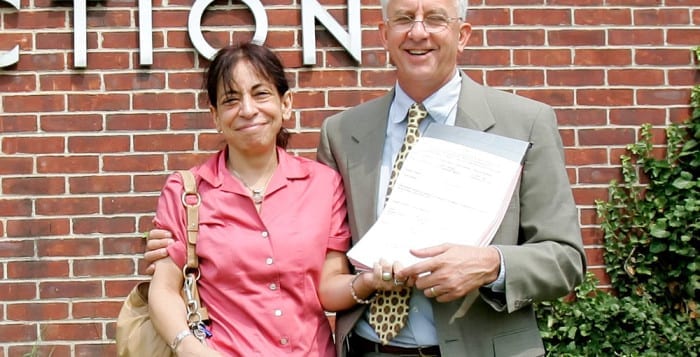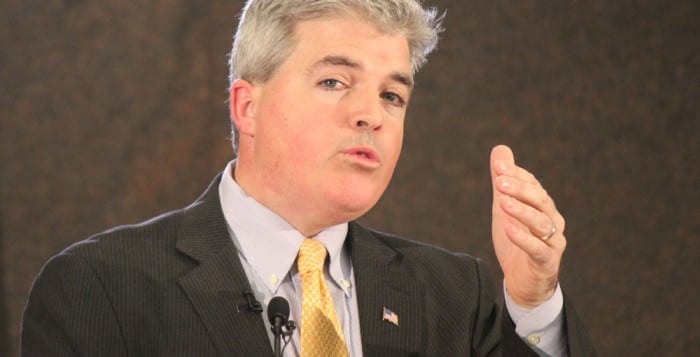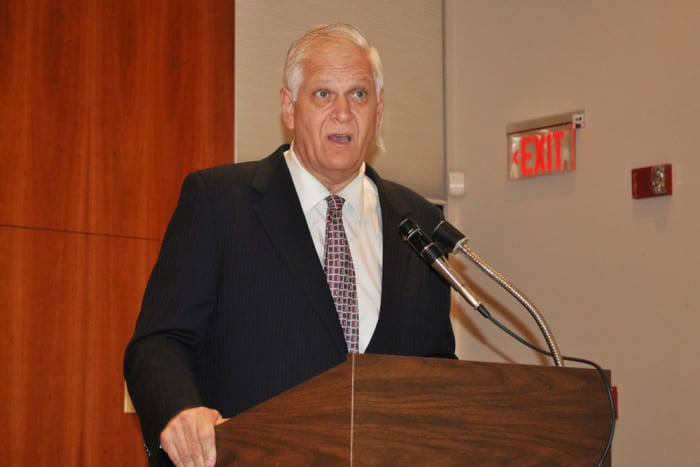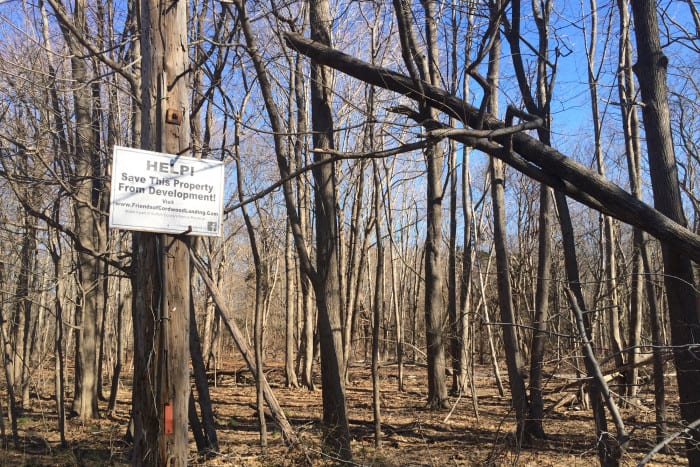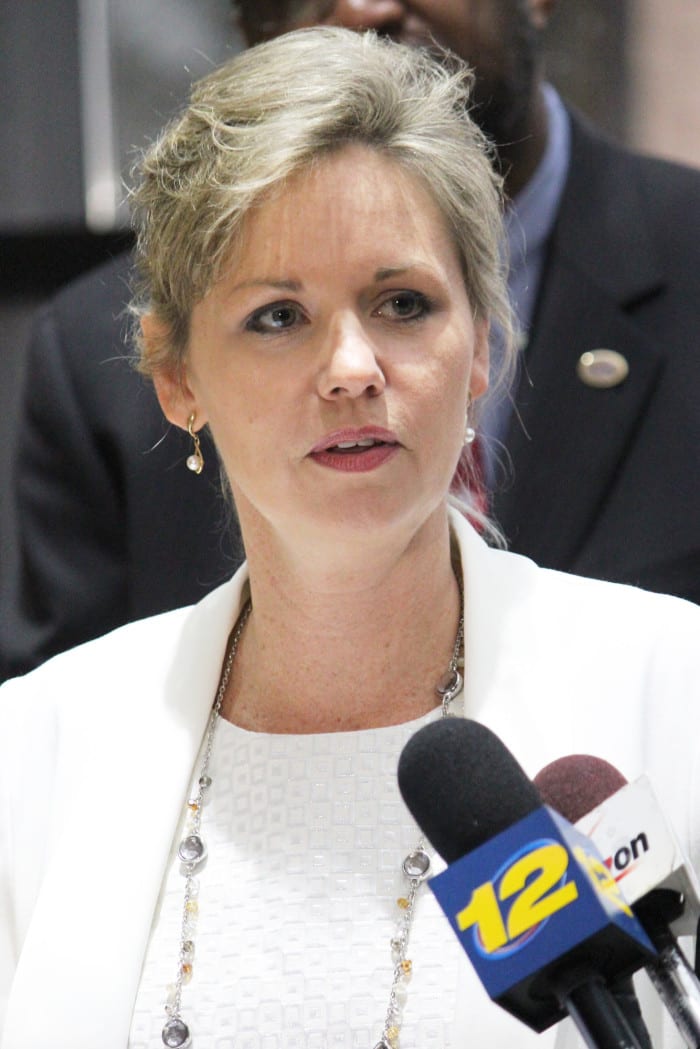In a special election held just nine months before the term is over, Leslie Kennedy (R) was elected Tuesday to succeed her husband, Suffolk County Comptroller John M. Kennedy Jr. (R), in the county Legislature’s 12th District.
Leslie Kennedy, a 58-year-old resident of Nesconset, bested Democrat Deborah Monaco of Smithtown in Tuesday’s special election with 993 total votes from Republicans, Conservatives and Independents versus Monaco’s 149 from strictly Democrats, according to the county Board of Election’s unofficial vote totals.
She previously served as an administrative aide under her husband when he held a seat in the Legislature.
The current comptroller was elected to his seat in November, leaving the Legislature spot vacant at the beginning of this year.
Both Brookhaven Town Supervisor Ed Romaine (R) and the entire Suffolk County Republican Committee had pegged Leslie Kennedy as their choice to succeed her husband, calling her a hard-working and popular figure in her community.
“The Democrats tried to make Leslie Kennedy an issue in the [November] county comptroller race, where John Kennedy scored a substantial victory on one line, the Republican line,” Suffolk GOP Chair John Jay LaValle said. “The move backfired terribly and cemented Leslie Kennedy’s reputation as a constituent favorite. Her record of service is unassailable and she will continue a powerful legacy of protecting our tax dollars and serving the people of the 12th District.”
Monaco, 55, had not been actively campaigning for the seat, according to Suffolk County Democratic Chairman Richard Schaffer, who said her name was on the ballot in order to provide voters with options come March 31.
She previously served as secretary of the Suffolk Democratic Committee as well as the county’s Board of Elections.
Kennedy Jr. beat Democrat Jim Gaughran, chairman of the Suffolk County Water Authority, with 53 percent of the vote to 47 percent. After his election, a jubilant Kennedy vowed to “open up the books,” in Suffolk County, while Gaughran said he had “no regrets about this race.”
The 12th Legislative District is a largely Republican-dominated region of the North Shore and includes Smithtown, Nesconset, Hauppauge, the Village of the Branch, Lake Grove and parts of Commack, Islandia and Ronkonkoma.

